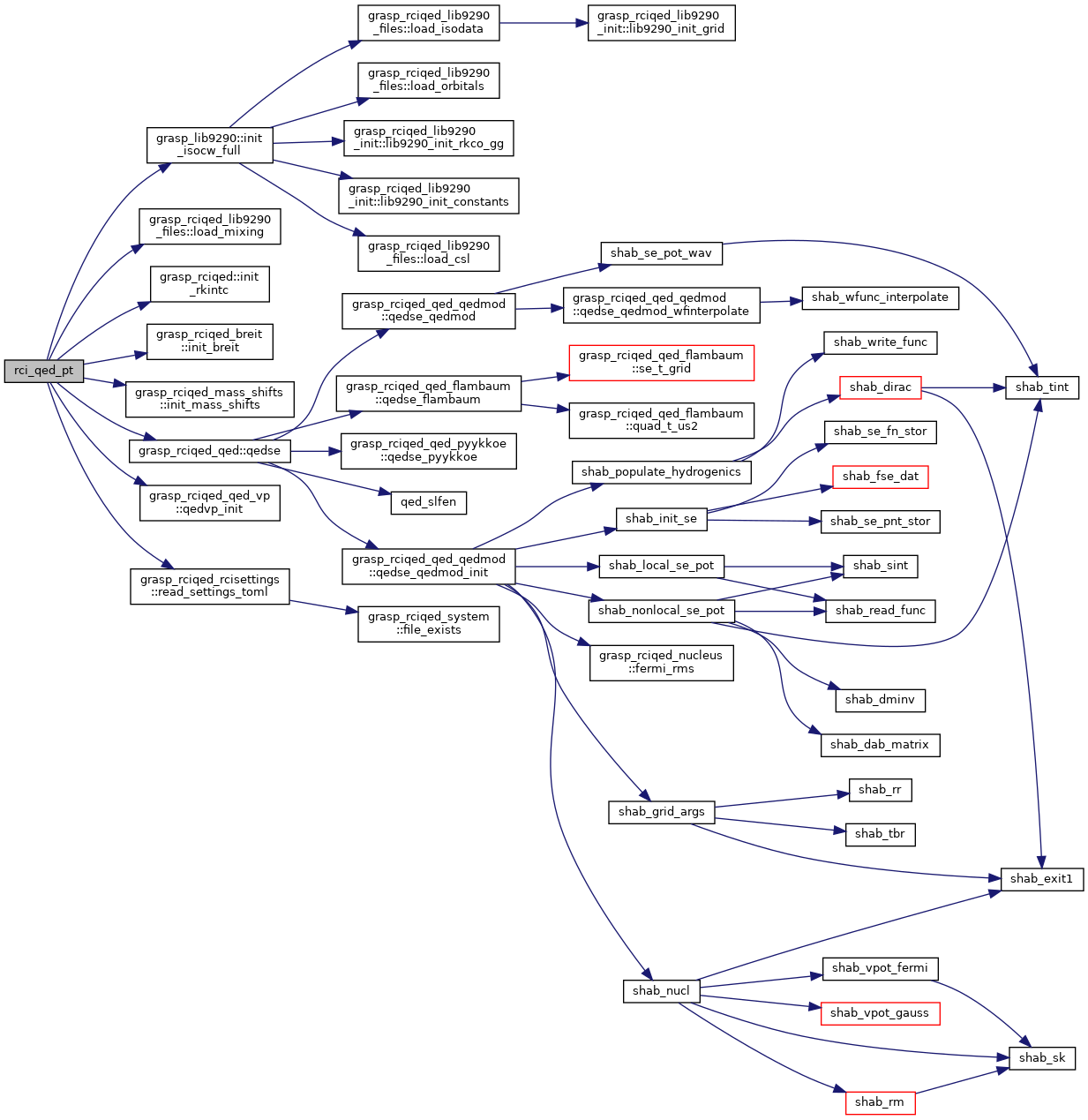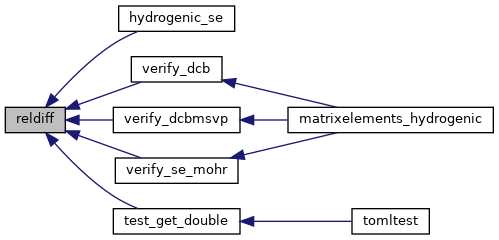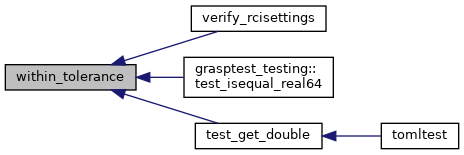Data Types | |
| type | matrixelement |
Functions/Subroutines | |
| program | rci_qed_pt |
| ./rci-qed.pt <state> More... | |
| real(real64) function | getindex (me, idx) |
| subroutine | write_csv_header (unit) |
| subroutine | write_csv_asf_line (unit, me) |
| subroutine | check_file (filename) |
| subroutine | add_asfvalue (i, j, hij, k, asfvalue) |
Adds the contribution of the (i, j) matrix element to the asfvalue. More... | |
| real(real64) function | asf_coefficient (k, i) |
| Returns the i-th ASF coefficient of the k-th state. More... | |
| subroutine | verify_rcisettings (settings) |
Verifies if the nuclear and grid values in the .settings.toml file match the ones set by loading the isodata files. More... | |
| logical function | within_tolerance (a, b, relative_tolerance) |
Checks if the difference of a and b are within the tolerance relative to \(\max(|a|,|b|)\). More... | |
| real(real64) function | reldiff (a, b) |
Calculate the relative difference of a and b. More... | |
| pure character(:) function, allocatable | check (yesno) |
| logical function | get_command_argument_allocating (n, value) |
Retrieves the n-th command line argument. More... | |
Function/Subroutine Documentation
◆ add_asfvalue()
| subroutine rci_qed_pt::add_asfvalue | ( | integer, intent(in) | i, |
| integer, intent(in) | j, | ||
| type(matrixelement), intent(in) | hij, | ||
| integer, intent(in) | k, | ||
| type(matrixelement), intent(inout) | asfvalue | ||
| ) |
Adds the contribution of the (i, j) matrix element to the asfvalue.
hij must contain the (i, j) Hamiltonian matrix element and asfvalue must be the k-th ASF value.

◆ asf_coefficient()
| real(real64) function rci_qed_pt::asf_coefficient | ( | integer, intent(in) | k, |
| integer, intent(in) | i | ||
| ) |
Returns the i-th ASF coefficient of the k-th state.

◆ check()
| pure character(:) function, allocatable rci_qed_pt::check | ( | logical, intent(in) | yesno | ) |

◆ check_file()
| subroutine rci_qed_pt::check_file | ( | character(*), intent(in) | filename | ) |

◆ get_command_argument_allocating()
| logical function rci_qed_pt::get_command_argument_allocating | ( | integer, intent(in) | n, |
| character(:), intent(inout), allocatable | value | ||
| ) |
Retrieves the n-th command line argument.
If it was able to fetch the argument value, returns .true. and sets value to the value ([re]allocating if necessary). Returns .false. if there was an error retrieving the argument.
Under the hood it calls get_command_argument, but it properly allocates or re-allocates the value to match the actual length of the argument.
TODO: For this to be a proper library function, it should be implemented as an interface with additional methods to handle pointers and fixed-length strings.

◆ getindex()
| real(real64) function rci_qed_pt::getindex | ( | type(matrixelement), intent(in) | me, |
| integer, intent(in) | idx | ||
| ) |

◆ rci_qed_pt()
| program rci_qed_pt | ( | ) |
./rci-qed.pt <state>
Performs analysis and perturbative calculation on the RCI state.
Takes a single command line argument: state.
Depends on files: isodata, <state>.c, <state>.w and <state>.cm

◆ reldiff()
| real(real64) function rci_qed_pt::reldiff | ( | real(real64), intent(in) | a, |
| real(real64), intent(in) | b | ||
| ) |
Calculate the relative difference of a and b.
The relative difference is defined as:
\[ \frac{|a-b|}{\max(|a|, |b|)} \]
- Parameters
-
a,b Input values.
- Returns
- The relative difference of
aandb.

◆ verify_rcisettings()
| subroutine rci_qed_pt::verify_rcisettings | ( | type(rcisettings), intent(in) | settings | ) |
Verifies if the nuclear and grid values in the .settings.toml file match the ones set by loading the isodata files.
Does not abort if there are discrepancies, just prints warnings.

◆ within_tolerance()
| logical function rci_qed_pt::within_tolerance | ( | real(real64), intent(in) | a, |
| real(real64), intent(in) | b, | ||
| real(real64), intent(in) | relative_tolerance | ||
| ) |
Checks if the difference of a and b are within the tolerance relative to \(\max(|a|,|b|)\).
- Parameters
-
a,b Values to be checked. relative_tolerance Relative tolerance \(\sigma\).
- Returns
- Whether \(|a-b| / \max(|a|,|b|) < \sigma\).

◆ write_csv_asf_line()
| subroutine rci_qed_pt::write_csv_asf_line | ( | integer, intent(in) | unit, |
| type(matrixelement), intent(in) | me | ||
| ) |

◆ write_csv_header()
| subroutine rci_qed_pt::write_csv_header | ( | integer, intent(in) | unit | ) |
 1.8.13
1.8.13